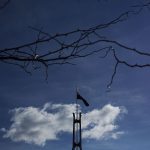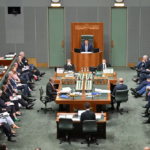The Australian cattle feedlot industry
As consumers, we hardly ever spare a thought for the industry that produces a lot of the food ending on our plates. Striving for more transparency and understanding, Dougal Gordon, CEO of the Australian Lot Feeders’ Association, explains why Australian farmers are some of the best in the world.
It is clear that whilst consumers are now more interested in how food is produced, they have never been more disconnected from the industry that produces it, agriculture. The end result of this rural-urban divide is that consumers are oblivious to the fact that Australian farmers are some of the best in the world from an animal welfare, environmental and technological perspective and our food among the most affordable, sustainable and safe. With farmers generally self reliant, introverted and solitary (and hence reluctant to communicate ‘what we do and why we do it’), the Australian cattle feedlot industry has nonetheless recognised that we need to better explain our industry and practices.
The feedlot industry was first developed not as a way to increase efficiency and productivity but to address the vagaries of our climate. In northern Australia, dry winters and hence deficient pastures meant that it is difficult for cattle to reach market specifications. In southern Australia, dry summers result in the same challenge. Our regular droughts across our country also negatively affect cattle productivity and beef eating quality. Much like manufactured products, such as cars, the ability to supply a consistent quality and quantity is a key benefit of the cattle feedlot sector.
The efficiencies gained from cattle lot feeding are also not confined to the sector. US research has concluded that to produce the same amount of beef the feedlot sector requires 56% less cattle, 55% less land, 25% less water, 40% less carbon emissions, 50% less manure and 49% less feed. This of course leads to significant environmental and societal benefits.
Whilst the food production system has changed markedly over time, the values and beliefs of those who produce it have not. Around 98% of feedlots are owned and managed by families. They are hard working and passionate about their industry and the products they sell, with these qualities also ingrained into their children. They feel an ethical obligation to look after their animals and the environment and are heavily involved in their local communities – after all, they want to pass on their businesses to future generations without the loss of public trust and confidence in the sector. Lot feeders not only breathe the same air and drink the same water as their neighbours but also understand that happy animals produce better quality beef.
To ensure community expectations are maintained over time, the industry has a number of systems and programs in place. For example, the sector was the first to implement quality assurance in Australia. The National Feedlot Accreditation Scheme (NFAS) is independently owned and managed with feedlots additionally independently audited on an annual basis to ensure compliance with animal welfare, environmental and food safety legislation. Audit results are provided to Government representatives who comprise the majority of participants on the program’s management committee with penalties potentially as severe as exclusion from key domestic and export markets. NFAS is reviewed and updated regularly, industry training and events are held each year to continually improve best management practices, and awards have been developed to encourage industry excellence. The industry regularly meets with retailers and the RSPCA and conducts thousands of feedlot tours every year to explain the sector to the general public. A large amount of information is additionally available on the industry peak body’s website.
Whilst the feedlot production system is not perfect (no production system is), we strive to continually improve and address its weaknesses. In the end, whilst not all consumers may agree with the industry and its practices, we would hope that they maintain an open mind given the values and beliefs of our people, strength of our systems and efforts to be honest and transparent.
Dougal Gordon grew up on a sheep and cattle property near Armidale in the New England area of NSW. He has worked in industry research and development with the Meat Research Corporation, as a consultant with Hassall & Associates, at senior policy levels with the NSW Farmers’ Association and has been CEO of the Australian Lot Feeders’ Association since 2007. Dougal holds a Bachelor of Agricultural Economics from the University of Sydney, a Masters of Commerce degree from Macquarie University and is a Graduate of the Australian Institute of Company Directors.














